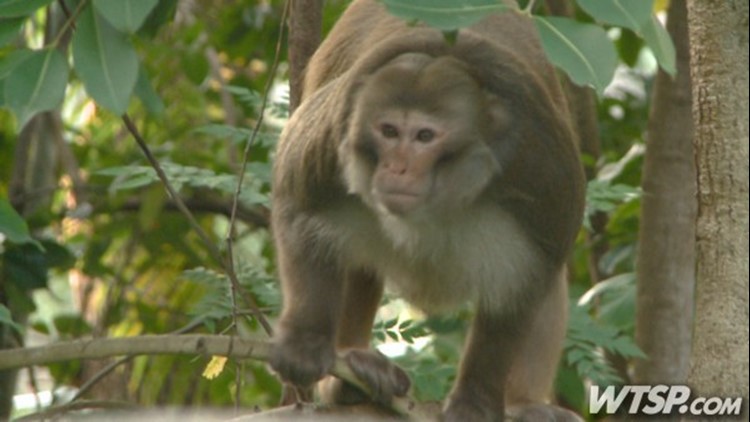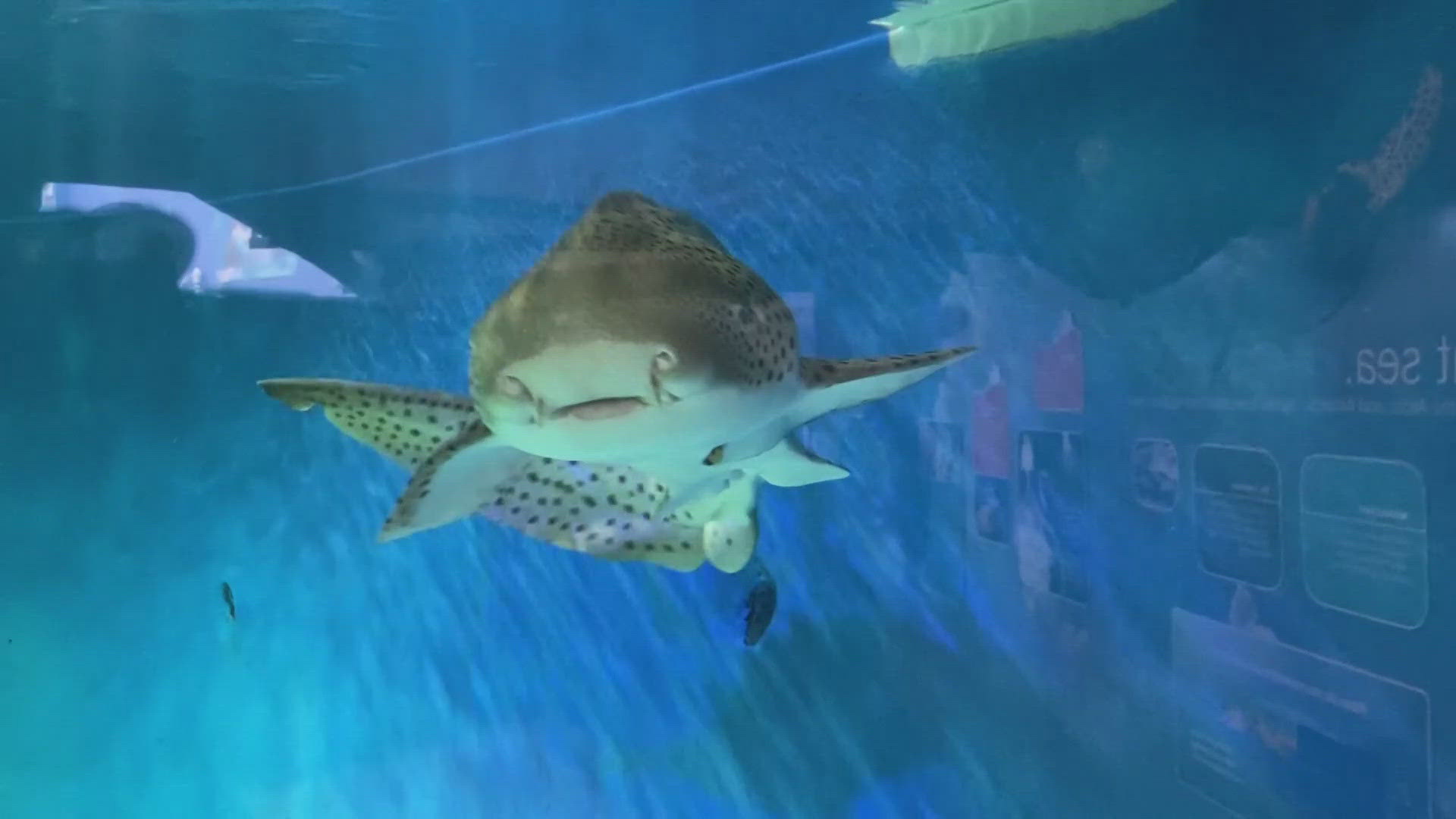Some say they were brought to Florida during the filming of Tarzan movies many years ago. Others say they were released here as a tourist attraction in the 1930s.
But scientists say it's time to round-up the macaque monkeys in our state, because they carry a disease that could be dangerous to humans.
Vernon Yates of Wildlife Rescue and Rehabilitation knows a thing or two about macaque monkeys. In fact, he's the one that finally trapped Cornelius - the mystery monkey - who'd spent four years evading capture around Tampa Bay.
And he agrees the wild Macaque's should be captured because they're not native to Florida.
“They should be eliminated. I realize they have a lot of history. I realize they've been there for a long time,” he said.
In fact, they’ve been in Florida for nearly century. Brought here in the 1930's as tourist attraction, about 200 macaques still survive in the wild around Silver Springs.
The big question, says Yates: ”What is the state going to do with them?”
The monkeys carry the Herpes B virus, which is deadly in humans. So when a recent federal report found the disease could be transmitted through a bite or scratch, the Florida Fish and Wildlife Conservation Commission decided the monkey’s pose a public health risk.
“Therefore, the FWC supports active management to remove these threats,” says Carli Segelson of the FWC.
Yates says it's probably not a coincidence, that just within the past few months, FWC reached out to him and others with permits to keep macaques in Florida asking, “How many could you take now? Would you be willing to tranquilize them? Would you be willing to do this or that or what have you?“
Yates says at first, capturing the monkeys would be fairly easy. But as their numbers dwindled, the intelligent ones could probably evade capture for years.
“Like Cornelius. He knew me on sight. He knew the gun. He knew the truck. And he knew when I showed up, run.”
FWC says it's still too early in the process to figure out how they would trap the monkeys. Yates is concerned rather than capture, trappers might just kill them.
Which would be a shame, says Yates. Because, despite interactions between the monkeys and humans, like this one captured on video this past summer in Silver Springs – he’s unaware of any humans ever contracting the virus.
“It’s not their fault. And you know, there’s no reason to just kill them because they’re loose. Bring them in.”
For those of you wondering whatever happened to Cornelius the mystery Monkey, he’s still alive a doing fine. He even became a father about three years ago at Dade City’s Wild things, a 22-acre zoo in Pasco County.
►Make it easy to keep up-to-date with more stories like this. Download the 10 News app now.
Have a news tip? Email tips@wtsp.com, visit our Facebook page or Twitter feed.



